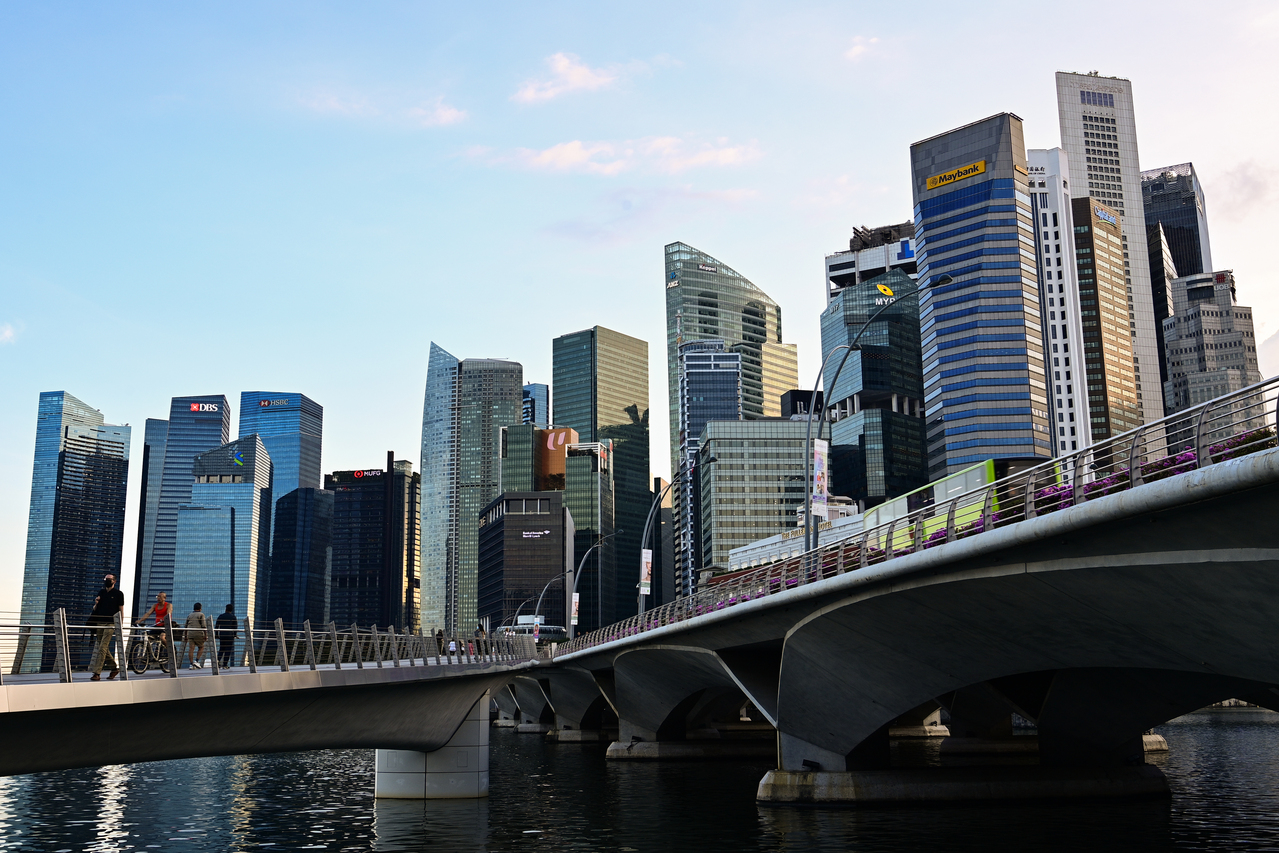S'pore committed to progressive tax structures beyond Budget 2022: Indranee
Sign up now: Get ST's newsletters delivered to your inbox

Finance Minister Lawrence Wong announced plans to raise taxes for high earners in his Budget speech on Feb 18, 2022.
ST PHOTO: LIM YAOHUI
SINGAPORE - The Singapore Government is committed to progressive taxes and transfers structures, and the wealth tax measures rolled out in this year's Budget are not "the be all and the end all of it", said Minister in the Prime Minister's Office and Second Minister for Finance Indranee Rajah on Tuesday (Feb 22).
"Every Budget builds on the past," she said during a roundtable discussion with two other panellists and a host on radio station Money FM 89.3. "Going forward, tackling inequality will definitely still be very much high on our priority."
In his inaugural Budget speech last Friday, Finance Minister Lawrence Wong had announced plans to raise taxes for high earners through increased levies on personal income, residential properties and luxury cars.
Ms Indranee said the Government was "continually reviewing" such moves. "But we felt that the measures in this year's Budget would be the most significant, tangible way that we could tax wealth," she added.
For instance, from 2024, resident taxpayers' chargeable income in excess of $500,000 up to $1 million will be taxed at 23 per cent, while income in excess of $1 million will be taxed at 24 per cent - both up from the current 22 per cent.
This is expected to affect the top 1.2 per cent of personal income taxpayers.
"We thought that that was fair because they can bear it, they can take that amount," said Ms Indranee, who is also Second Minister for National Development.
She then turned to the new tax rules for owner-occupied residential properties. For these, HDB flats and at least two-thirds of private properties such as condominiums will not be affected, said Ms Indranee. "It's really those at the very high end of landed property; high-end condominiums that will be affected."
Rates for non-owner-occupied residential properties, which include investment properties, will be increased to between 12 per cent and 36 per cent, up from the current 10 per cent to 20 per cent. Owner-occupied homes will be taxed 6 per cent to 32 per cent for the portion of annual value in excess of $30,000, up from 4 per cent to 16 per cent today.
"We're trying to make it more progressive, but also trying to make it such that it's tangible and it doesn't leave room for evasion and structuring in such a way that you can get around the rules," said Ms Indranee.
Panellist and KPMG Singapore's head of tax Ajay Kumar Sanganeria said he agreed with the approach towards taxing wealth that is not portable and hard to move out of Singapore.
He suggested that future Budgets look at stamp duty, which was raised in December last year as part of cooling measures in the face of Singapore's booming property market.
Additional buyer's stamp duty was increased from 12 per cent to 17 per cent for citizens buying their second residential property, and from 15 per cent to 25 per cent for those buying their third and subsequent properties.
But Mr Sanganeria pointed out that basic buyer's stamp duty is still 4 per cent for properties valued at $1 million and above, whether a good-class bungalow or a high-value property.
The KPMG Singapore partner was also of the view that the imminent goods and services tax (GST) increase - from the current 7 per cent to 8 per cent from January next year and 9 per cent in 2024 - was not something to be dealt with only now.
"It's going to be an evolution. It needs to be properly adjusted further depending on the needs of Singapore going forward," he said.
The global average of GST stands at 19 per cent and the Asian average is at 12 per cent.
Consumption tax is preferred as a more stable form of tax collection and "doesn't hurt so much" the tax competitiveness of the country, Mr Sanganeria explained.
And given Singapore's need for more revenue to cater to healthcare and social needs, set against the backdrop of inflationary concerns, introducing a staggered GST hike is a right move, he said.

Ms Indranee stressed that 60 per cent of GST collected is derived from top earners and foreigners working in Singapore. "It's designed such that we collect from everyone to have a simple system, but we give to the low income and the middle income to buffer them," she said.
A $6.6 billion package has been set aside to soften the blow of the GST hike, incorporating cash payouts and utilities and medical rebates among other things, in particular for lower-income seniors.
UOB senior economist Alvin Liew, the other panellist, said it is not just about increasing support for the lower-income segments, but building towards a more sustainable social compact and future economy.
"It can't be that a portion of the economy races ahead and leaves a certain portion behind. I think that cannot work," he said.
Ms Indranee acknowledged that there were groups in society, such as seniors, concerned about increasing prices and cost of living.
She pointed to a slew of measures unveiled over past Budgets including Community Development Council vouchers, the Silver Support Scheme to top up retirement income, and the Pioneer and Merdeka Generation packages offsetting healthcare costs.
"If you look at everything in its totality, seniors again need not worry and if any of them have specific instances of need, they should approach the social service officers, approach the MPs," said Ms Indranee. "Because we won't let people fall through the cracks. That much I can say."
This article has been edited for clarity.


